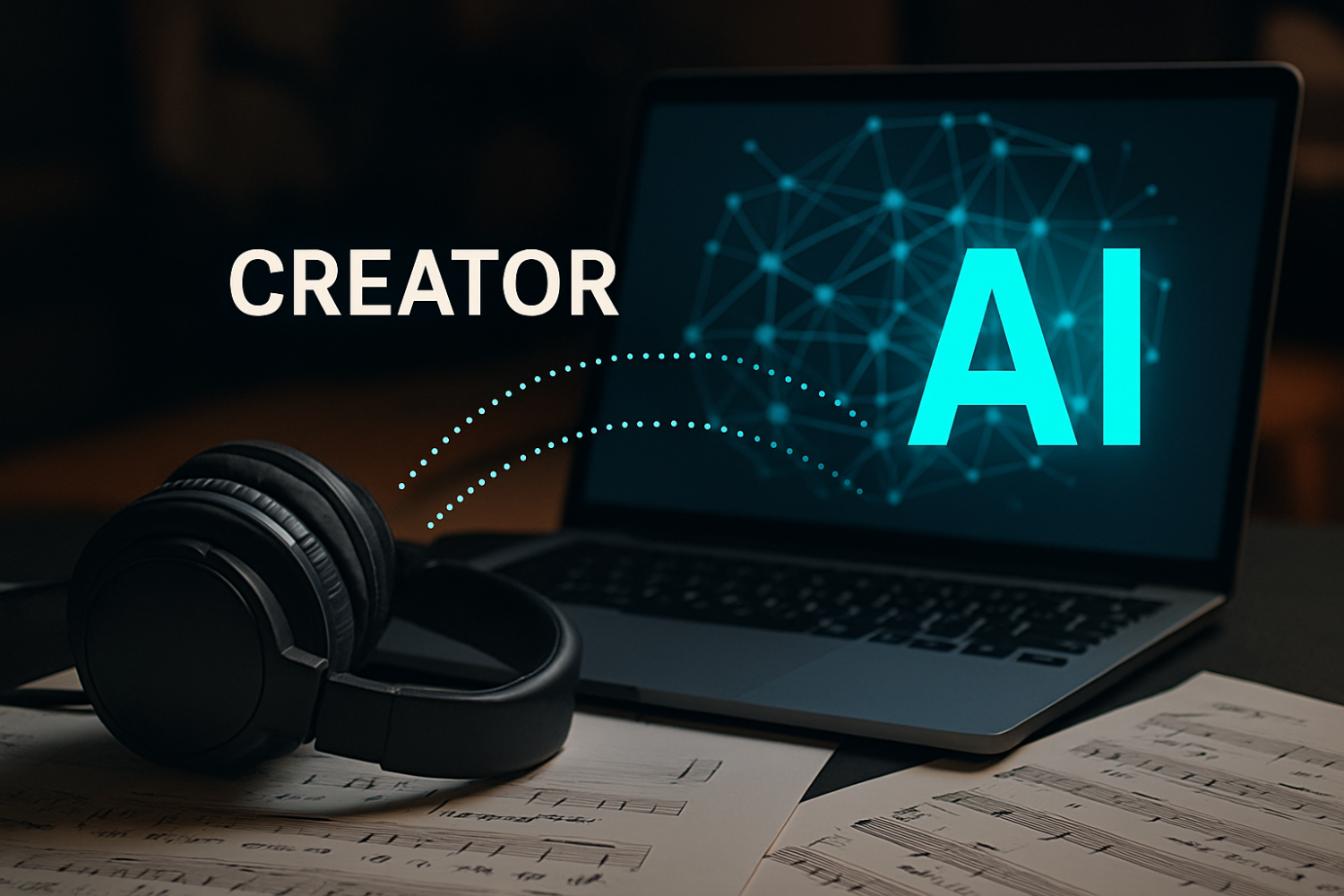Echora is one of the first companies trying to slow down the chaos and rebuild the music meets AI ecosystem with actual structure, not through fear, not through litigation, but through something creators have been asking for: clear attribution and real permission. If you’ve spent any time around artists in the last year, you already know the temperature around AI: a mix of curiosity, anxiety, and “yo, don’t steal my shit.”
The tech world keeps celebrating breakthroughs, but creators see something different, their work being pulled into models without permission, without credit, and without a single dollar coming back.
And honestly, the frustration is justified.
No one knows what’s being scraped.
No one knows which works influenced a generated track or lyric.
No one knows why a piece of their style shows up in an AI demo “trained on publicly available data.”
The music industry spent decades fighting to get metadata right. AI skipped all of that and just started eating.
What Echora Is Actually Doing (Without the Buzzwords)
In the simplest, most RMR way to put it:
Echora tracks what specific creative works influenced an AI-generated output, for real. Not guesses. Not vague percentages. Actual attribution.
They built a system where rightsholders can claim their catalogs, set their rules, and tell AI companies exactly how (and if) their work can be referenced. And because they partnered with Muso.AI, one of the only companies that takes verified music credits seriously, the data isn’t sloppy or scraped from random lyric sites.
This isn’t another “sign up for exposure” tool. It’s infrastructure.
Echora’s platform plugs directly into AI systems and becomes the source of truth:
“What work influenced this output?”
“How much of it?”
“Who gets credit?”
“Who gets paid?”
There’s no middleman. No mystery. No vault of scraped songs hiding behind an NDA.
Why Artists Actually Care About This
The biggest reason Echora is getting attention from the creative community is simple:
You finally get to say yes or no.
For decades, rightsholders dealt with blanket licenses, backdoor deals, and platforms telling them “it’s already in the system.” AI amplified that problem 100x. Once your work gets sucked into a model, you lose visibility into everything.
With Echora, creators can:
- Log in and claim their catalog instantly
- Set exact permission settings
- Block specific categories like politics, medical content, or adult topics
- Change their mind anytime
- Establish pricing and licensing terms without negotiating 30 contracts
- Let collaborators vote on rights and splits in one place
It’s the first time anyone has made AI licensing feel as easy as posting your credits.
The “Live Reference” Piece — The Part No One Else Is Doing Right
Everyone talks about “training data,” but that isn’t the real battle anymore. The real action is in live reference — when AI models pull fresh material after they’re trained.
It’s how ChatGPT reads the news.
It’s how models stay current.
And it’s how they can legally access creative works going forward, instead of relying on scraped archives.
Echora built their entire system around this idea:
- AI companies can license updates in real time
- Creators stay in control
- Attribution is calculated based on actual influence
- Rightsholders get paid per output
The whole thing works like a loop:
AI requests references → Echora supplies licensed material → AI generates → Echora attributes → rightsholders get compensated.
Nothing gets scraped.
Nothing gets buried in a “training data lawsuit.”
Everything stays above board.
The Founder Actually Comes From the Creative Trenches
A lot of AI tools are built by people who have never touched a studio, a publishing deal, or a credit sheet.
Adam Miko is different. Before Echora, he was an art director working on music videos including Doechii’s 2025 VMA-winning “Anxiety”, and spent years inside the messy reality of publishing splits at Pulse Music Group.
He’s worked directly with artists, managers, labels, and the literal spreadsheets that make or break royalty payments. He built Echora because he lived the headaches. He saw the metadata problems. He saw how slow publishing systems adjust. And he knew what AI was about to do if nobody stepped in with a real solution.
So he built one, not with fear, but with clarity.
Creators Are Already Paying Attention
The Echora platform hasn’t even been in the wild long, but artists like Bonnie McKee, behind some of the biggest pop hits of the last decade, are calling it the first ethical way for AI to reference creative work.
And she’s not wrong.
This is the first system where artists aren’t begging tech companies to respect their work — the tech has to come to the table.
Echora isn’t trying to stop AI.
They’re trying to give creators the control they should’ve had from the beginning.
And honestly?
It feels like something the industry has needed for years.







